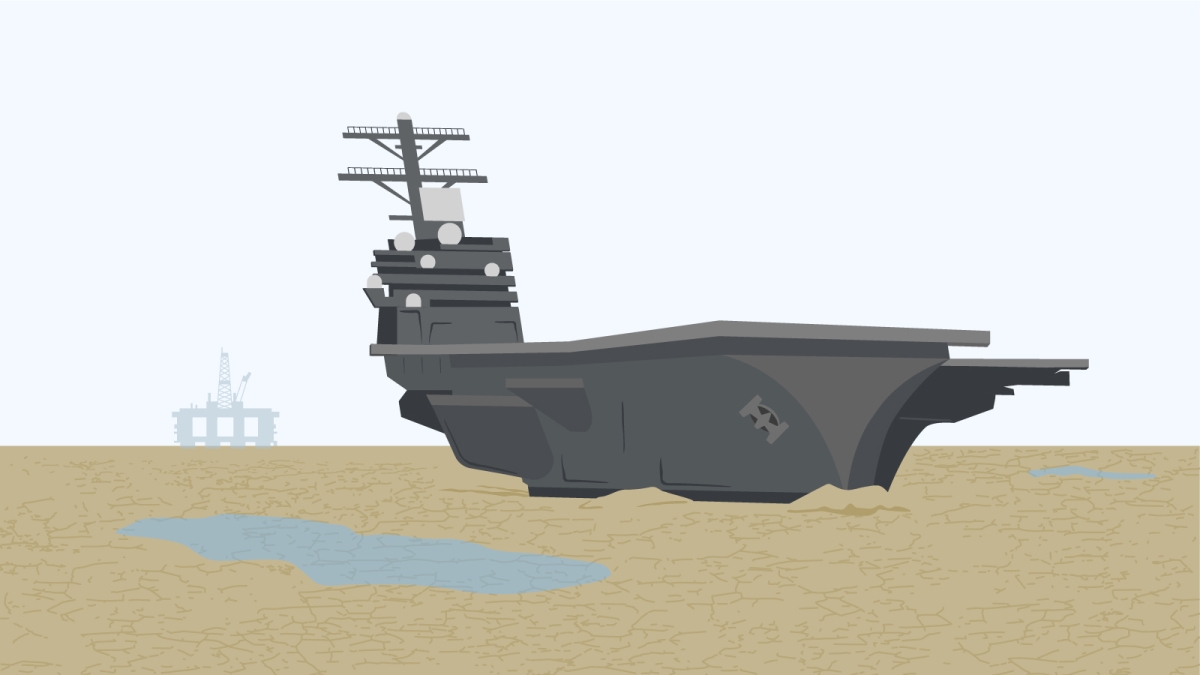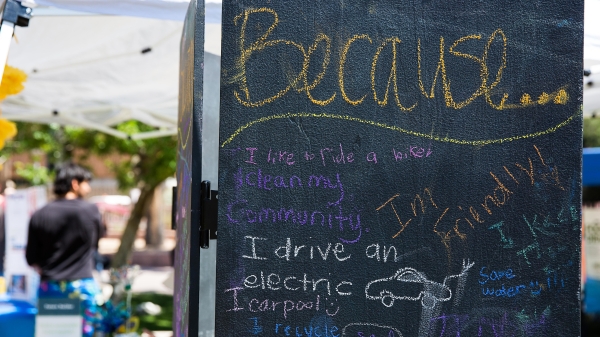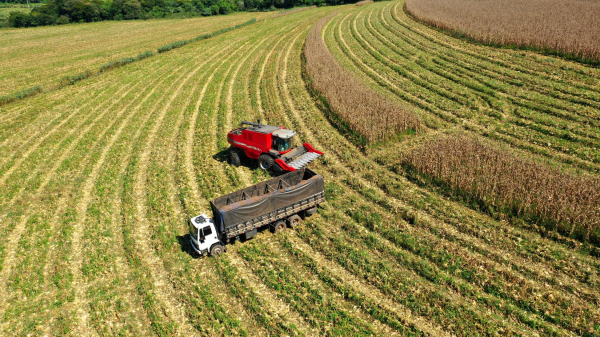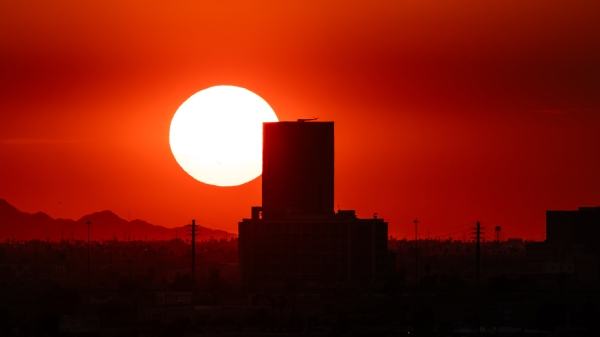Could climate change affect national security?
Retired lieutenant general discusses threats the American military must prepare for at ASU lecture

Climate change and national security are two topics most people don’t connect.
But a retired Air Force leader connected the dots between the two at a lecture at Arizona State University on Thursday.
“I’m not here to convince you about climate change,” said Lt. Gen. Dirk Jameson. “I’m past that.” The science is definitive, he added. With all the data produced to date, objections are political, not scientific.
The talk was cosponsored by the American Security Project, a bipartisan group of retired military leaders and senior business leaders concerned about long-term planning for national security interests, and ASU’s Julie Ann Wrigley Global Institute of Sustainability.
Jameson served as deputy commander in chief and chief of staff of U.S. Strategic Command before retiring from the U.S. Air Force in 1996 after more than three decades of active service. Prior to his StratCom assignment, he commanded the 14,500 men and women of the U.S. 20th Air Force and was responsible for all U.S. intercontinental ballistic missiles, seven major subordinate units, operational training, testing, security and readiness.
There are two types of threats the military sees in climate change, he said. The first is the threat to the armed forces’ 500 installations worldwide, comprising about 300,000 buildings.
Jameson described a March visit to a flooded Air Force base in Nebraska where planes couldn’t take off or land. Another instance of extreme weather came in October 2018 when Hurricane Michael, one of the strongest recorded hurricanes ever to hit the continental U.S., damaged or destroyed every building at Tyndall Air Force Base in the Florida panhandle. Damage was estimated at $5 billion.
ASU researchers are working on base resilience, most recently in an exercise at Marine Corps Base Hawaii in Kaneohe Bay on Oahu.
The second type of threat is what climate change can unleash against the military in terms of political climate. The term for it is “accelerant of instability” or a “threat multiplier.” The Syrian civil war’s origins lie partly with the most intense drought ever recorded in the country. It lasted from 2006 to 2011 and resulted in widespread crop failure, an increase in food prices and a mass migration of farming families to urban centers, straining already overburdened infrastructure.
Areas at risk around the globe include Bangladesh and the Bay of Bengal, the Pacific, the Middle East and sub-Saharan Africa. As an example, Jameson showed photos of Lake Chad, the biggest lake in sub-Saharan Africa. The lake is a quarter of the size it was in 1972. Thirty million people are dependent on its water.
The military does not wait to act until there’s a 100% chance of a threat. One percent is enough cause for readiness, a doctrine attributable to former Vice President Dick Cheney.
“I’m not happy with what’s going on at the national level,” Jameson said. “The world is desperate for American leadership.”
What can individuals do?
“You have to put the finger on your elected officials to say, ‘This is an urgent circumstance,’” Jameson said.
Top art by Alex Cabrera, Media Relations and Strategic Communications Visual Communications.
This event was part of Salute to Service, an annual celebration of Veterans Day in which Arizona State University proudly honors veterans and active members of the military with a series of events across the metro Phoenix campuses.
More Environment and sustainability

Earth Day celebrations focus on making our planet a priority
On April 22, Earth Day is celebrated across the country and in nearly 193 countries around the world. Arizona State University will be part of that celebration. The university has planned more…

ASU scientist studies how bans, regulations on food technology affect consumer acceptance, perceptions
How do people process scientific developments with outside influences, warnings, biases and others’ opinions filtering in? That’s the question Caitlin Drummond Otten, environmental social scientist…

ASU team's research leads to new law protecting mobile-home dwellers
Arizona Gov. Katie Hobbs signed a law earlier this month that guarantees mobile-home owners’ right to install cooling measures, thanks in large part to the work of an Arizona State University team.…